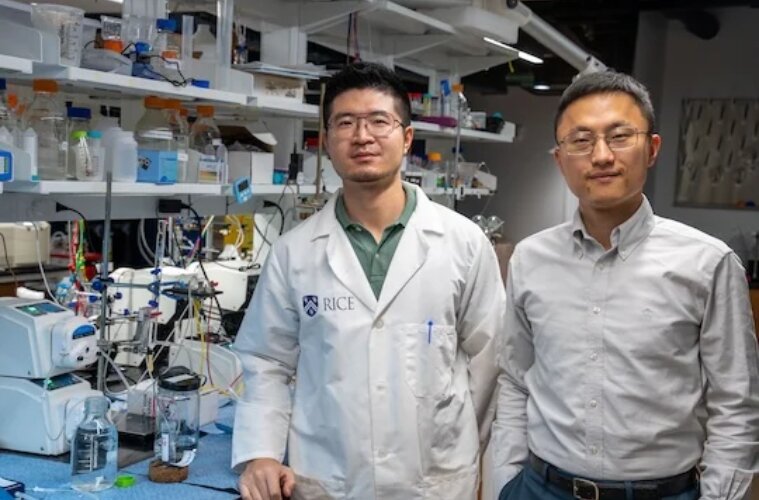Revolutionizing Carbon Capture: Rice University's Electrochemical Reactor for Efficient DAC
Key Ideas
- Rice University has developed an electrochemical reactor for carbon capture, offering a more efficient and cost-effective alternative to traditional DAC methods.
- The reactor can operate at room temperature, leveraging electricity to regenerate CO₂ with no additional chemicals or byproducts, reducing energy consumption and costs.
- This innovation not only enhances carbon capture efficiency but also enables hydrogen coproduction, aligning with the growing global demand for clean energy sources and sustainable manufacturing.
- Supported by foundations, the project reflects Rice University's commitment to sustainable innovation and scalable technologies for a net-zero future.
The urgency to tackle carbon emissions has led to significant advancements in direct air capture (DAC) technologies, with Rice University unveiling an innovative electrochemical reactor. This reactor aims to revolutionize carbon capture by sidestepping the high energy demands and operational costs typically associated with DAC. Unlike conventional methods that rely on heat-driven processes and chemical sorbents, Rice's reactor uses electricity to efficiently capture and convert carbon dioxide at room temperature without generating unwanted byproducts.
The modular design of the reactor optimizes ion movement and mass transfer, allowing for long-term stability, high efficiency, and adaptability to various industrial applications. Additionally, the reactor's unique feature of hydrogen cogeneration during carbon capture could reshape industries by integrating clean energy sources into their processes.
The potential to capture up to 5-10 gigatons of CO₂ per year by 2050 with affordable and scalable DAC technologies aligns with the aspirations of the industry. By offering a solution that reduces energy consumption, cuts costs, and supports hydrogen coproduction, the Rice reactor presents a promising pathway towards sustainable carbon management.
Rice University's commitment to sustainable innovation and practical, scalable technologies is evident through this project, which is supported by prestigious foundations. The research not only emphasizes the reactor's efficiency in controlling ion movement and mass transfer but also highlights its potential to drive industries towards a net-zero economy. As global initiatives aim to reduce carbon emissions and boost clean energy production, the Rice team's efforts could play a crucial role in bridging the gap between emerging technologies and industrial applications.
Topics
Utilities
Clean Energy
Technology
Innovation
Sustainability
Energy Efficiency
Research
Carbon Capture
Industry
Latest News
